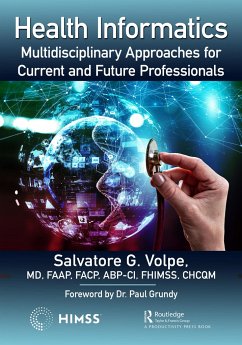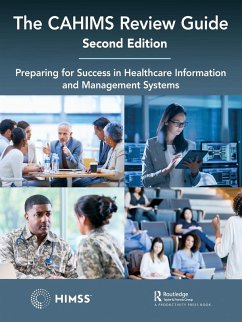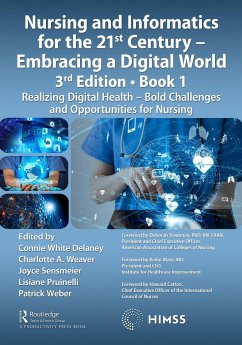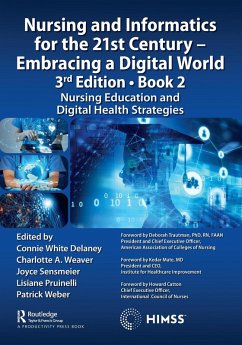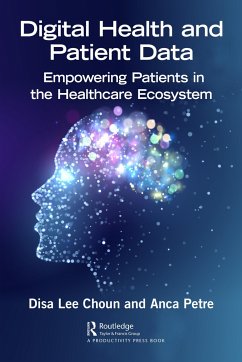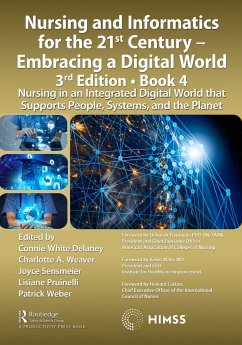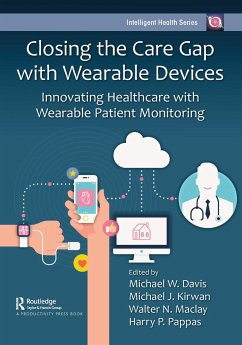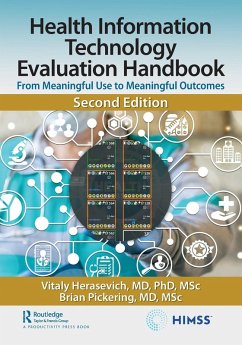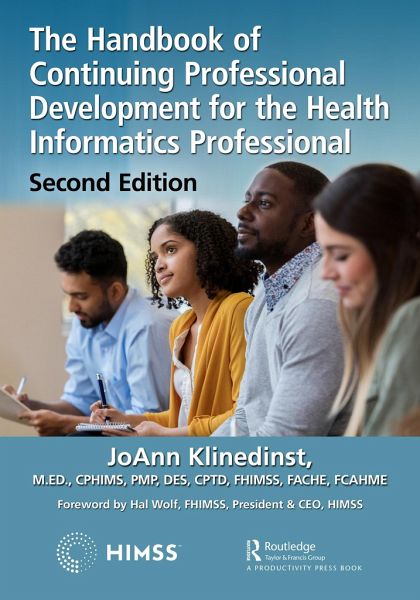
The Handbook of Continuing Professional Development for the Health Informatics Professional
Versandkostenfrei!
Versandfertig in 6-10 Tagen
43,99 €
inkl. MwSt.

PAYBACK Punkte
22 °P sammeln!
Engaging in ongoing, continuing professional development (CPD) is a strategic imperative for the health informatics professional. In our global economy, healthcare is fast-paced, dynamic, and ever-changing. While this rapid change is both exciting and exhausting, digital health transformation is positively impacting lives, today and every day, in ways not previously imagined. Faced with a COVID-19 pandemic that has forever changed the landscape of health and care delivery, global health and care stakeholders must ensure that our ecosystem continues to rapidly evolve through innovation, governm...
Engaging in ongoing, continuing professional development (CPD) is a strategic imperative for the health informatics professional. In our global economy, healthcare is fast-paced, dynamic, and ever-changing. While this rapid change is both exciting and exhausting, digital health transformation is positively impacting lives, today and every day, in ways not previously imagined. Faced with a COVID-19 pandemic that has forever changed the landscape of health and care delivery, global health and care stakeholders must ensure that our ecosystem continues to rapidly evolve through innovation, government and ministry incentives, and technological advancements to reach citizens everywhere. For these reasons, health informaticists must embrace lifelong learning to ensure they have the professional competencies to advance initiatives that positively impact patient care.
The Handbook of Continuing Professional Development for the Health Informatics Professional, Second Edition hasadapted to the evolving needs of health and care professionals everywhere. The Handbook provides the rationale and the resources to do so and serves as a reference to enhance one's career. No other comprehensive resource exists to assist health informaticists in developing and maintaining their professional competencies. Written as a contributed compilation of topics by leading practitioners, the book discusses the most critical competencies needed to ensure understanding of the vast health and care ecosystem while also highlighting industry influences that shape the very evolution of health information and technology.
About HIMSS
The Healthcare Information and Management Systems Society (HIMSS) is a global advisor, thought leader, and member association committed to transforming the health ecosystem. As a mission-driven non-profit, HIMSS offers a unique depth and breadth of expertise in health innovation, public policy, workforce development, research, and analytics to advise leaders, stakeholders, and influencers from across the ecosystem on best practices. With a community-centric approach, our innovation engine delivers key insights, education, and engaging events to healthcare providers, payers, governments, startups, life sciences, and other health services organizations, ensuring they have the right information at the point of decision. HIMSS has served the global health community for more than 60 years with focused operations across North America, Europe, the United Kingdom, the Middle East, and Asia-Pacific.
The Handbook of Continuing Professional Development for the Health Informatics Professional, Second Edition hasadapted to the evolving needs of health and care professionals everywhere. The Handbook provides the rationale and the resources to do so and serves as a reference to enhance one's career. No other comprehensive resource exists to assist health informaticists in developing and maintaining their professional competencies. Written as a contributed compilation of topics by leading practitioners, the book discusses the most critical competencies needed to ensure understanding of the vast health and care ecosystem while also highlighting industry influences that shape the very evolution of health information and technology.
About HIMSS
The Healthcare Information and Management Systems Society (HIMSS) is a global advisor, thought leader, and member association committed to transforming the health ecosystem. As a mission-driven non-profit, HIMSS offers a unique depth and breadth of expertise in health innovation, public policy, workforce development, research, and analytics to advise leaders, stakeholders, and influencers from across the ecosystem on best practices. With a community-centric approach, our innovation engine delivers key insights, education, and engaging events to healthcare providers, payers, governments, startups, life sciences, and other health services organizations, ensuring they have the right information at the point of decision. HIMSS has served the global health community for more than 60 years with focused operations across North America, Europe, the United Kingdom, the Middle East, and Asia-Pacific.





